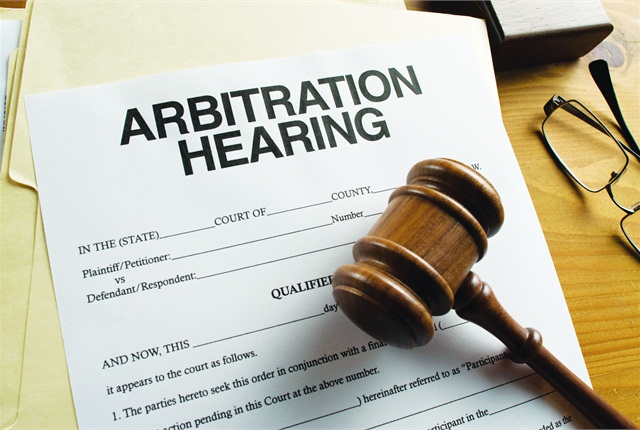Arbitration is an alternative method of dispute resolution. This method is a quasi-judicial process directed by an independent arbitrator who acts as the judge. The appointed arbitrator bilaterally accepted by both parties (usually creditor & debtor) acts in his capacity accordingly and is usually a lawyer of some expertise. The parties assign the dispute to be decided by the arbitrator who will act with impartiality, based solely on the evidence and the arguments presented to him by the parties. When the arbitrator decides the award then it is binding and fully enforceable between the parties.
Arbitration is a speedy, swift and efficient method of dispute resolution, especially in relation to dispute regarding commercial matters. In Cyprus Arbitration is regulated under CAP. 4. Moreover in disputes where at least one of the parties does not reside in Cyprus it is still possible to conduct Arbitration under the International Commercial Arbitration Law (Law 101/1987). More importantly Cyprus is also a signatory to the New York Convention of 1958 on the Recognition and Enforcement of Arbitral Awards. Both CAP 4 and the International Commercial Arbitration Law have equal effect, depending upon the particular field or individuality of the case.
There are a number of advantages for choosing Arbitration, especially for the party demanding or asserting (the creditor). Firstly it is a cost effective and practical solution which is more economical than court action. Secondly it is speedier and more flexible than traditional litigation. In addition to these it provides more confidentiality, as the arbitration process is conducted in private away from the public eye. Lastly the award decided is easier to be enforced in another country thanks to the New York Convention of 1958.
After the delivery of an award, the award must be registered in the Court via a relevant application, in order to be fully enforceable and binding. If any party feels that the award is unfair or unjust then they can appeal the award to the Supreme Court. The Court may set aside or refuse the recognition or enforcement of an award only on the grounds of:
- Incapacity of the parties involved
- Invalidity of the arbitration award
- Lack of proper notice or denial of a party’s right to present his case
- Lack of jurisdiction
- Defective composition of the Arbitration tribunal
- The matter of the dispute cannot be settled by arbitration under the law of Cyprus
- The award is contrary to the public order of the Republic of Cyprus
With the proviso that the award fails to meet one of the above grounds, then it is legally binding on the parties and cannot be appealed.
As long as the Arbitrator appointed remains objective, impartial and unbiased in the matter to be resolved, then the result of such arbitration is virtually certain to be equitable and just.
Author Michaella Pillakouri, Lawyer
Fine Life Limassol LTD, All rights reserved © 2017-02-06

